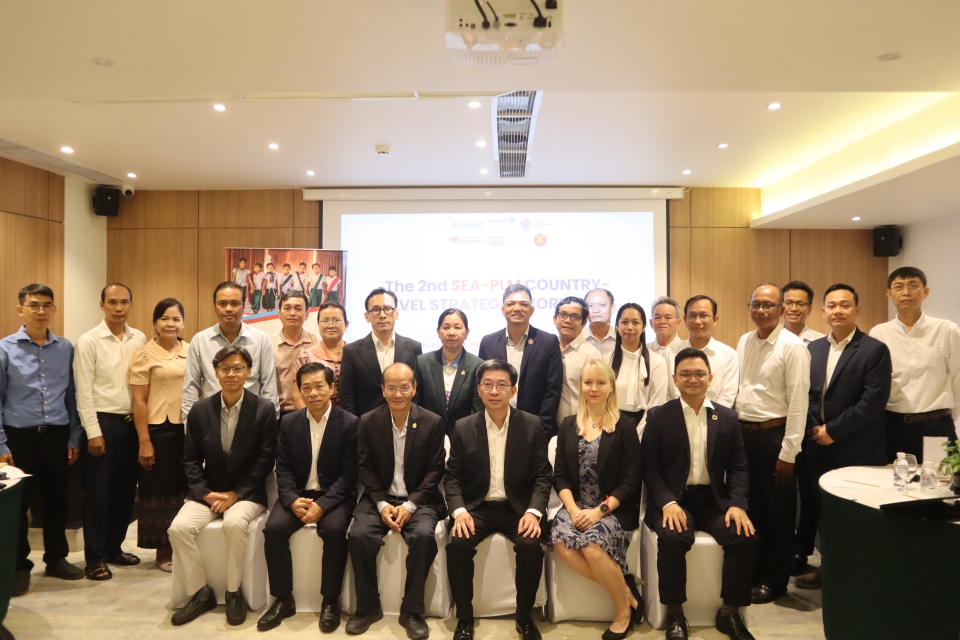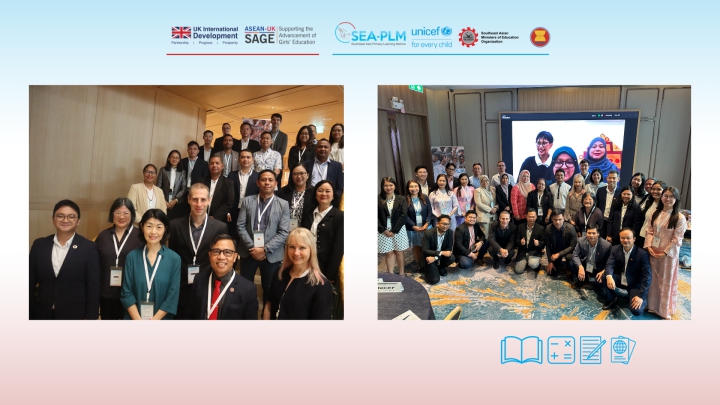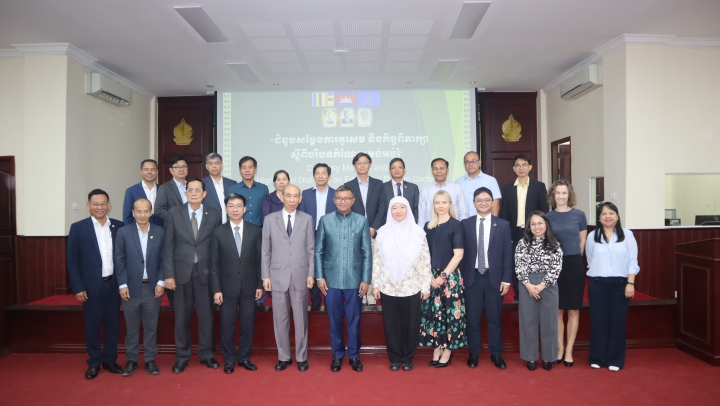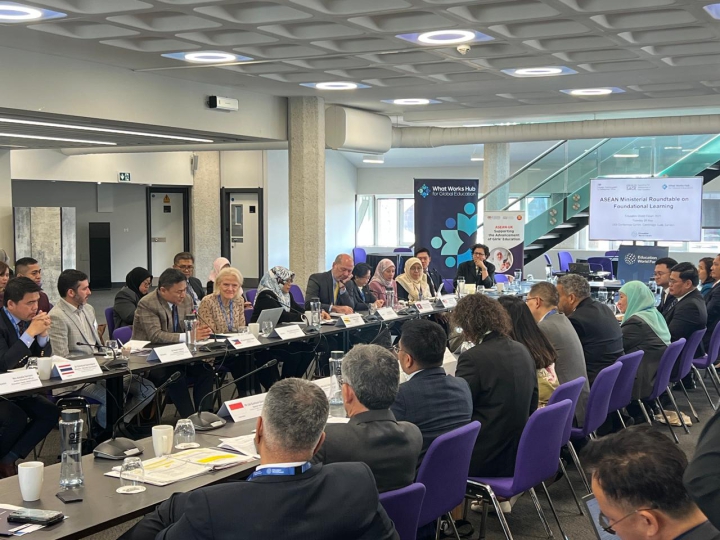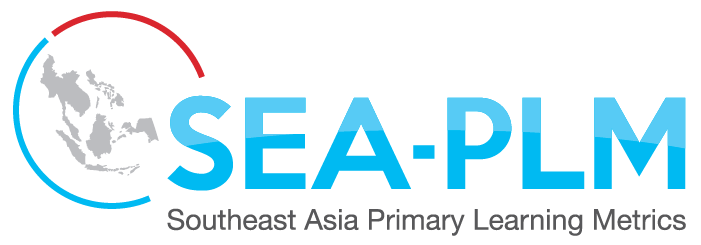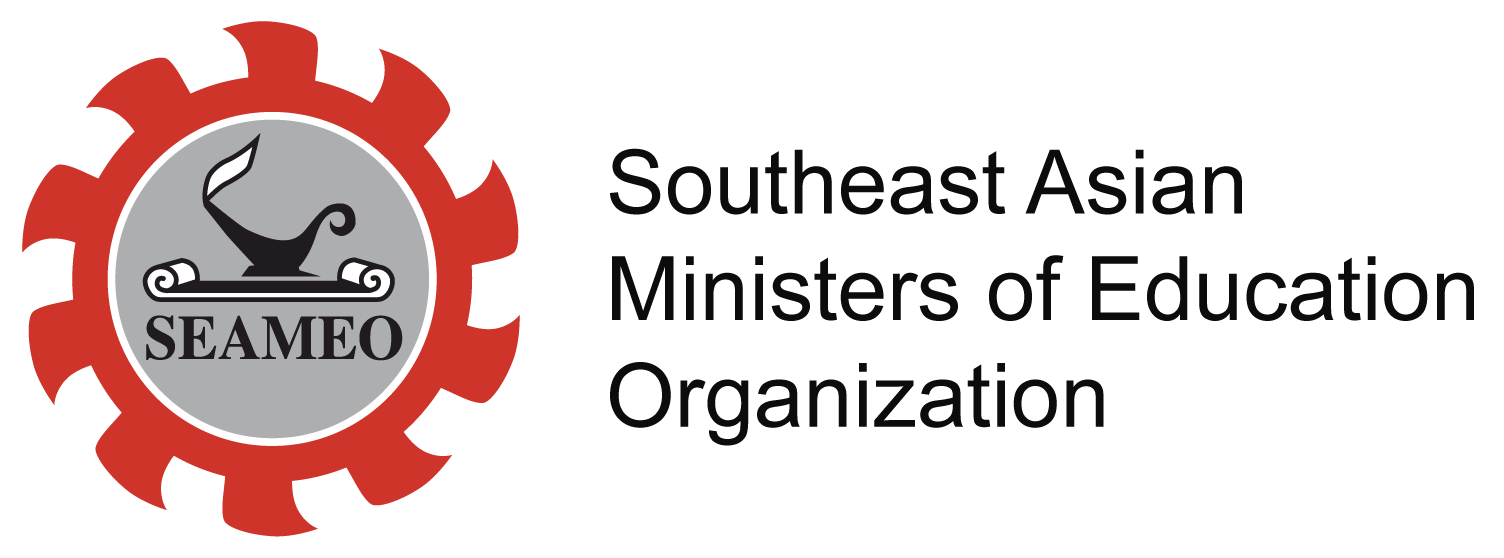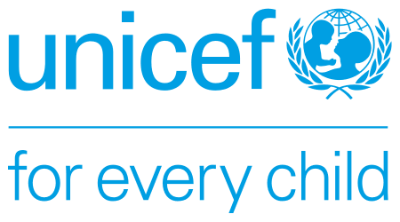
NEWS
This is your main NEWS category. Note that Joomla has another NEWS category built in. This one is for the plug-in called K2.
SEA-PLM Launches the 2024 Main Regional Report on Foundational Learning in Southeast Asia
Pasay, December 2025 - Education leaders, partners, and stakeholders from across Southeast Asia gathered in Manila not only to mark the launch of the SEA-PLM 2024 main regional report, but to renew a shared commitment: that every child deserves the chance to build strong foundations in reading and mathematics.
Organized by SEA-PLM Regional Secretariat, led by the SEAMEO Secretariat and UNICEF East Asia and Pacific Regional Office (EAPRO), with the generous support of the UK Government through the ASEAN-UK SAGE programme, and hosted by the Philippine Department of Education (DepEd), the SEA-PLM 2024 Main Regional Report Launch brought together more than a hundred participants from SEA-PLM participating countries (Cambodia, Lao PDR, Malaysia, Myanmar, the Philippines, and Viet Nam), as well as honorary countries Brunei Darussalam, Thailand, and Timor-Leste, alongside a wide wide community of regional and international partners.
The event marked the culmination of SEA-PLM’s second cycle and created space for a conversation that felt both technical and deeply human. Behind every chart and trendline, participants were reminded of real classrooms, real teachers, and real children navigating learning in a post-pandemic and rapidly changing world.
In his opening remarks, Mr Kamal Mamat, Assistant Director, Education, Youth and Sports Division, ASEAN Secretariat underscored that SEA-PLM’s value lies not only in measurement, but in meaning, particularly as the region shapes its future education priorities. His words resonated strongly with the audience, “each data point represents an individual child with potential and dreams”.
 |
 |
(Left) H.E. Mr Sonny Angara, Secretary, Department of Education, Philippines. (Right) Mr Kamal Mamat, Assistant Director, Education, Youth and Sports Division, ASEAN Secretariat
That same spirit carried through the launch ceremony itself. Delegates and partners assembled a puzzle board to symbolize how progress in foundational learning is built, piece by piece, country by country, through collective responsibility. The visual reinforced the idea that improving education opportunities and shaping students’ futures in Southeast Asia requires sustained collaboration across systems and borders. This aligns with the remarks of His Excellency Secretary Sonny Angara where he noted “the spirit of regional cooperation, noting that ASEAN education has always been about “community rather than competition.”
 |
 |
Acknowledgement and appreciation to the Governments of the United Kingdom, represented by Ms Isla Gilmore, Education Adviser, UK Mission to ASEAN, and the Republic of Korea, represented by Mr Jeung Kwan Seo, First Secretary & Infrastructure Attache, Embassy of the Republic of Korea in Manila
Support from partners was reaffirmed throughout the launch. The SEA-PLM Secretariat recognised the role of the Republic of Korea through the ASEAN-Korea Cooperation Fund (AKCF) and the United Kingdom through the ASEAN-UK SAGE Programme in making the work possible. In particular, the Republic of Korea reiterated its commitment through “continued funding and technical support” for SEA-PLM 2029, alongside partner institutes helping translate evidence into policy and practice. The UK Mission to ASEAN also framed the 2024 Regional Report as a “call to action” urging stronger commitment to evidence-based policy-making and keeping foundational learning at the centre of national development.
SEA-PLM 2024 Tracks Learning Recovery and Equity Gaps in Southeast Asia
A major highlight of the day was the presentation of SEA-PLM 2024 results by the SEA-PLM Regional Secretariat. The session explained how student proficiency is captured through SEA-PLM proficiency bands, and how the distribution of learners across these bands informs both policy and classroom practice. Importantly, SEA-PLM announced that all six participating countries now have reliable, internationally recognised data points for SDG 4.1.1b—minimum proficiency in reading and mathematics. Using this benchmark, the regional picture shows both progress and urgency: 53% of Grade 5 learners meet minimum proficiency in reading, and 68% meet minimum proficiency in mathematics, compared with 46% in reading and 56% in mathematics in 2019.

Mr Alejandro Sinon Ibanez, Mr Antoine Marivin, and Ms Linda Johnsson from the SEA-PLM Regional Secretariat presented the SEA-PLM 2024 regional results and key policy insights.
Between 2019 and 2024, regional trends present a mixed story. While mathematics outcomes improved, reading performance remained largely unchanged. Gains were most visible among higher-performing students, while many learners remain clustered in the lower bands, underscoring the need to strengthen basic competencies and accelerate progress for those furthest behind.
From this evidence, three clear implications emerged:
- target investment where disadvantage is concentrated;
- strengthen system resilience in the face of uncertainty; and
- accelerate progress for learners at low proficiency levels, including out-of-school children.
 |
 |
 |
 |
Participants, partners, and education stakeholders during SEA-PLM 2024 Main Regional Launch.
Equity remains the unfinished agenda
SEA-PLM 2024 findings reaffirm that equity challenges persist across gender, socio-economic status, access to early childhood education, and language spoken at home. The learning gap between students from the lowest and highest socio-economic quartiles reaches up to two years, while children who attended early childhood education outperform their peers by as much as one year of learning by the end of primary school.
Participants stressed that even when average performance improves, disparities can remain—or widen—if equity is not addressed explicitly. As a result, the message repeated throughout the day was not simply to raise scores, but to raise the floor and close the gaps through inclusive and gender-responsive systems, adequate resourcing for disadvantaged learners, and stronger alignment between language-of-instruction policies and learners’ home languages.
More than an assessment
Throughout the launch, SEA-PLM was repeatedly framed not as a one-off study, but as a shared regional mechanism for learning and reform. Datuk Dr Habibah Abdul Rahim, Director, SEAMEO Secretariat described SEA-PLM in simple, powerful terms: “SEA-PLM is more than an assessment, it is a regional public good.” In closing the ceremonial launch, she emphasised that the day was about more than unveiling evidence. It was a reaffirmation that every child deserves essential skills—and that the findings demand bold leadership, strategic investment, and consistent use of evidence
She also announced that preparations are underway for the SEA-PLM Multi-Annual Strategic Plan 2026–2031, including the third assessment cycle, SEA-PLM 2029, aligned with SDG 2030 targets. As she reminded participants, “Evidence must lead to action, and action must lead to meaningful change.”
 |
 |
Datuk Dr Habibah Abdul Rahim from SEAMEO Secretariat, and Ms Mitsue Uemura from UNICEF EAPRO gave an opening and closing remarks.
From Evidence to Practice
To move beyond headlines and into implementation, the launch featured three thematic breakout sessions focusing on: School leadership and teaching and learning, Gender, equity, and inclusion, and Scaling up foundational learning,
These sessions linked SEA-PLM evidence with promising initiatives and practical examples of what works in real education systems.
The day concluded with a strong sense of forward momentum. The SEA-PLM Regional Secretariat shared plans to develop a set of regional recommendations based on SEA-PLM 2024, feeding into a future regional declaration on foundational learning and the ASEAN Education Sector Workplan. Further analyses are also planned, including reporting on the writing domain in early 2026 and additional secondary analyses with partners and researchers.
In her closing remarks, Ms Mitsue Uemura (UNICEF EAPRO) returned to a metaphor echoed throughout the day: SEA-PLM results as a “compass.” A compass, she noted, only matters if it is used collectively—by coordinating efforts, sharing resources, and regularly checking progress.
She closed with an aspirational vision of Southeast Asia becoming the fastest-improving region globally in ensuring every child learns, anchored in the words of a learner shared earlier that day: “Let’s keep learning. Let’s keep moving.”
–
SEA-PLM is supported by the ASEAN-Korea Cooperation Fund (AKCF) and the UK Mission to ASEAN under the ASEAN-UK Supporting the Advancement of Girls’ Education (ASEAN-UK SAGE) Programme. Its content is the sole responsibility of the SEA-PLM Regional Secretariat and does not necessarily reflect the views of AKCF and ASEAN-UK SAGE.”

|
|
|
|
|
|
|
|
Malaysia advances Evidence-to-Policy action through SEA-PLM Initiative 2 Strategic Workshop
Putrajaya, October 2025 - Malaysia convened its second SEA-PLM Country-Level Strategic Workshop under Initiative 2: Evidence-to-Policy Linkages, bringing together policymakers, technical experts, and development partners to translate learning evidence into concrete classroom-level improvements.
Convened in Putrajaya on 16–17 October 2025, the workshop built on Malaysia’s first country-level workshop held in May 2025 and aligned national priorities with the upcoming SEA-PLM 2024 Main Regional Report. The sessions were co-facilitated by the SEA-PLM Regional Secretariat, SEAMEO Secretariat, and UNICEF East Asia and Pacific Regional Office (EAPRO), fostering cross-sector collaboration to connect data, policy, and delivery. The workshop was made possible with the generous support of the ASEAN-UK SAGE programme.
The focus of the workshop was turning these insights into action. Malaysia tabled the Foundational Literacy and Numeracy Expertise Enhancement Programme (FLNEEP) under Initiative 2, aiming to build a cadre of 100 teachers and trainers able to design high-quality assessment items aligned to international large-scale assessment frameworks. The proposal includes exploring responsible AI integration for item generation, coupled with expert review to ensure quality and appropriate difficulty, and complementary capacity building on differentiated pedagogy, fun learning, and 21st-century classroom practices. The team also highlighted the value of adapting learning materials so teachers can continually tailor instruction to the range of abilities in their classrooms.
Opening the workshop, the SEAMEO Secretariat underscored the importance of aligning national action plans with regional timelines. Key priorities included finalising Initiative 2 interventions, completing System-Level Questionnaire (SLQ) Module 3, strengthening coordination through the National Steering Committee (NSC), and synchronising communications ahead of the regional report’s release.
Workshop discussions created space for reflection on what the SEA-PLM data reveal about Malaysia’s education system. Malaysia’s multilingual context, where Malay, Chinese, Tamil, and English are used as languages of instruction, remains a source of inclusion and cultural strength, but also presents instructional challenges when learners’ home language differs from the language used in school.
SEA-PLM 2024 regional findings indicate performance gaps in reading and mathematics between students whose home language matches the language of instruction and those for whom it does not. These patterns highlight the need for sustained and targeted linguistic support, particularly in the early grades.
Participants also revisited the lasting impacts of the COVID-19 pandemic and other school disruptions and challenges. While Malaysia’s no-repetition policy supported student wellbeing and continuity, participants agreed that targeted remediation is now essential to prevent early learning gaps from becoming entrenched.
 |
 |
 |
 |
(Left to right) Dr Shamsuddin Mohamad, Dr Nor Saidatul Rajeah binti Zamzam Amin, Mr Azhar bin Mohd Khairy from Ministry of Education Malaysia, Ms Linda Jönsson from UNICEF EAPRO
Participants of 2nd Country Workshop Malaysia
In the coming months, Malaysia will complete SLQ Module 3, finalise its national report and policy briefs under NSC guidance, and prepare for the preliminary national launch on 5 December 2025, followed by a formal national dissemination event. Pilot activities for FLNEEP will also begin, with practical monitoring to document early lessons and inform scale-up.
This second country-level workshop marks a pivotal step in transforming analysis into action—strengthening learning foundations in reading and mathematics for Grade 5 students. Malaysia’s Initiative 2 agenda is more than a policy roadmap; it represents a clear commitment to ensuring that evidence leads to fairer opportunities and better learning outcomes for every learner.
–
SEA-PLM is supported by the UK Mission to ASEAN under the ASEAN-UK Supporting the Advancement of Girls’ Education (ASEAN-UK SAGE) Programme. Its content is the sole responsibility of the SEA-PLM Regional Secretariat and does not necessarily reflect the views of ASEAN-UK SAGE.

|
|
|
|
|
|
|
|
Philippines Strengthens Evidence-to-Policy Linkages Through 2nd SEA-PLM Country Workshop
Manila, October 2025 - The Philippines convened its 2nd SEA-PLM Country-Level Strategic Workshop and National Steering Committee (NSC) Meeting to advance Initiative 2: Evidence-to-Policy Linkages, a regional effort designed to translate SEA-PLM data into actionable education reforms. The workshop is part of a continuing series sustaining country engagement following the 2024 main survey and preparing stakeholders for upcoming regional milestones. The workshop was made possible with the generous support of the ASEAN-UK SAGE programme.
The two-day workshop pursued four key objectives: to review and finalize national action plans and interventions under Initiative 2; to strengthen collaboration on SEA-PLM 2024, including the System-Level Questionnaire (SLQ); to convene the NSC for consideration of results and implications; and to align on forthcoming activities such as the regional report launch and related policy recommendations. Technical sessions were complemented by policy discussions through the NSC to ensure coherent strategies from the classroom to the system level.
The SEA-PLM Regional Secretariat presented the System-Level Questionnaire (SLQ) modules implemented in the 2024 survey, showcasing sample contextual indicators. Discussions focused on interpreting measures such as pre-primary and primary “life expectancy,” assessing instructional exposure (including shadow education), and aligning ILSA frameworks with the K–12 curriculum. The Bureau of Curriculum Development was invited to share its curriculum mapping paper to support these efforts.
DepEd officers outlined the newly enacted ARAL Law, which mandates daily literacy and numeracy sessions of 30–45 minutes, supported by teacher upskilling and adjusted workloads. Updates were also shared on the developments of language policy within the Department.
 |
 |
 |
 |
(Left to right) Ms Gretchen Cordero, Dr Kevin Carl Santos From Department of Education Philippines, Mr Alejandro Ibanez from SEA-PLM Regional Secretariat, Ms Linda Jönsson from UNICEF EAPRO
The National Steering Committee was formally recognized as an advisory body to DepEd on ILSA analysis, technical guidance, and evidence-based decision-making. Members underscored the importance of close coordination with technical working groups to ensure that SEA-PLM data informs classroom practice.
Priority follow-up analyses identified include a 2026 Language Policy Brief, learning-loss metrics, and deeper studies on the effects of early childhood education (ECCE) and socio-economic status (SES) on learning outcomes. The NSC also proposed developing a learner profile for “Type 2” low-performing students to guide targeted interventions. In addition, the committee agreed to channel SEA-PLM 2024 results into EDCOM2’s Year 3 report, following an agreed process that upholds embargo rules.
Participants reviewed regional trends from 2019 to 2024, methodological updates, and population-coverage variance, committing to further analysis using administrative and EMIS data. They noted stagnation among students in the lowest reading proficiency band and highlighted the need for enhanced support for emergent readers. The group also discussed the suitability of Band 6 thresholds for SDG reporting and proposed stronger alignment between SEA-PLM reporting and SDG 4 indicators.
Teacher, parent, and student with representative of DepEd, SEA-PLM Regional Secretariat, and UNICEF EAPRO at the Santolan Elementary School
To conclude the programme, representatives from DepEd, the SEA-PLM Regional Secretariat, and UNICEF EAPRO visited Santolan Elementary School to observe classroom practices and hear from teachers, parents, and students about strengthening foundational literacy and numeracy.
The meeting ended with consensus to convene the next NSC session—beginning with the PISA Committee—to seek guidance on the national report, finalize the Initiative 2 project proposal, and organize a joint discussion among EDCOM2, the national team, and the Regional Secretariat on integrating SEA-PLM findings into EDCOM2’s ongoing policy review.
–
SEA-PLM is supported by the UK Mission to ASEAN under the ASEAN-UK Supporting the Advancement of Girls’ Education (ASEAN-UK SAGE) Programme. Its content is the sole responsibility of the SEA-PLM Regional Secretariat and does not necessarily reflect the views of ASEAN-UK SAGE.

|
|
|
|
|
|
|
|
Cambodia convenes SEA-PLM National Steering Committee to advance evidence-to-policy agenda
Phnom Penh, October 2025 - Cambodia convened its 2nd SEA-PLM Country-Level Strategic Workshop in Phnom Penh on 6 - 7 and 9 October 2025, advancing a shared commitment to use assessment evidence to strengthen classroom teaching and learning. The workshop formed part of Initiative 2: Evidence-to-Policy Linkages, the programme stream designed to translate SEA-PLM results into practical, system-level actions. This 2nd country-level strategic workshop and National Steering Committee Meeting are made possible with the generous support of the ASEAN-UK SAGE programme.
Day 1 focused on SEA-PLM programme updates and discussed the 2024 regional preliminary results, including Cambodia’s preliminary 2024 country snapshots. Day 2 convened the NSC meeting with a bilateral meeting and continued consultations with the SEA-PLM Regional Secretariat. Day 3 was dedicated to follow up on the System-Level Questionnaire (SLQ) with clarifications on Modules 2 and 3 to ensure Cambodia’s system-level inputs are precise and policy-relevant.
 |
 |
H.E Borat Oung - Secretary of State and Head of the Cabinet of Deputy Prime Minister, Ministry of Education, Youth and Sport Cambodia. Ms Linda Jönsson - Education Specialist UNICEF EAPRO gave opening remarks on the workshop
Ministry leadership emphasised sustained, evidence-based reform thanking the SEA-PLM Secretariat for supporting the National Action Plan and for convening the NSC. Participants used the workshop to align next steps and to coordinate responses to the SLQ Module 3 across relevant technical offices.
On planning, Cambodia set a 12 December 2025 target for the National Report, positioned ahead of the regional report launch. Deliberations stressed benefits for teachers, curriculum strengthening, and processes that embed continuous data use in schools.
Meeting on Day 2 under the chairmanship of H.E. Puth Samith, the NSC received its first formal briefing on Cambodia’s SEA-PLM results and consolidated direction across policy and technical streams. The Committee called for deeper analysis of national datasets (including student–teacher ratios), inclusion of cross-country policy insights in the national report, and stakeholder consultations before finalising the National Action Plan.
As part of the extended programme, Day 4 featured an advanced System-Level Questionnaire session with assessment expert Dr Victor Fei Lim, offering practical guidance on indicator design and interpretation for policy use.
Meeting with National Steering Committee during technical working group meeting
To maintain momentum, the NSC agreed to: convene a Technical Working Group meeting the following week and hold a follow-up NSC meeting to be chaired by the Deputy Prime Minister by the end of October to validate the national roadmap and shape the policy response for the regional launch.
The NSC also steered Initiative 2 toward direct classroom benefit: positioning the national technical team as trainers in MOEYS’ capacity-building efforts, integrating SEA-PLM concepts into pre- and in-service teacher training (including higher-order item design), and conducting curriculum mapping to support targeted teaching.
With a clear report timeline, concrete analytical directions, and senior-level ownership through the NSC, Cambodia is tightening the link between evidence and action—ensuring that SEA-PLM results inform teacher development, curriculum enhancement, and continuous improvement in schools.
–
SEA-PLM is supported by the UK Mission to ASEAN under the ASEAN-UK Supporting the Advancement of Girls’ Education (ASEAN-UK SAGE) Programme. Its content is the sole responsibility of the SEA-PLM Regional Secretariat and does not necessarily reflect the views of ASEAN-UK SAGE.

|
|
|
|
|
|
|
|
Evidence-to-Action: Timor-Leste Advances SEA-PLM in the 2nd Strategic Workshop
Bangkok, November 2025 - Timor-Leste marked a significant milestone in its engagement with the Southeast Asia Primary Learning Metrics (SEA-PLM) programme by hosting the 2nd Country-Level Strategic Workshop. Held from 1–3 October 2025 in Dili, the event built on the momentum of the first workshop in February 2025 and demonstrated growing interest in the importance of data and evidence in driving meaningful reforms and actions in the basic education system. .
In his opening remarks, Mr Apolinario Serpa Rosa, Director General of the Ministry of Education Timor-Leste stressed that “assessment results must be translated into improved learning for every child, not remain at the technical level.” He urged central and municipal counterparts to use SEA-PLM results to inform decision-making, emphasizing the need to integrate data into existing Ministry programmes, especially those supporting schools directly.
The SEA-PLM Regional Secretariat echoed this view, describing the series of in-country workshops as a “crucial juncture” where countries transition from data generation to policy and programme application.

Mr. Apolinario gave an opening remark in the workshop
The first day of the workshop featured an update from the SEA-PLM Secretariat on the 2024 survey cycle, including guidance on the embargoed status of results until the regional launch in December 2025. The briefing explained the proposed structure of the forthcoming regional report, emphasizing that national reports should complement rather than duplicate its scope.
A key message highlighted: countries that targeted the lowest-performing learners saw greater improvements and demonstrated stronger resilience in improving overall learning outcomes..
A participant from the National Directorate of Planning, Budget and Statistics remarked during the plenary discussion “This is the first time we clearly see how regional data can speak to our own plans. If we communicate it properly within the Ministry, SEA-PLM will not only be a report, it will inform our Saturday classes, remedial initiatives, and teacher mentoring.” This testimony illustrates an emerging national understanding that assessment should feed directly into existing Ministry mechanisms.
Day two focused on Initiative 2, a regional mechanism designed to support countries in piloting and scaling interventions informed by SEA-PLM evidence. Timor-Leste presented its working proposal titled “Learning Recovery Support for Low-Performing Schools Identified in the SEA-PLM Study.” The project includes: Development of literacy and numeracy recovery materials aligned with the national curriculum, Coaching, mentoring, and ICT-enabled support for teachers and school leaders, Establishment of a local support system to sustain improvements beyond the project period
A technical session on the School Learning Questionnaire (SLQ), facilitated by an expert from Singapore, allowed reflection on key policy dimensions such as teacher recruitment, bilingual instruction models, and in-service support. Timor-Leste’s unique bilingual context, Portuguese as the primary language with Tetum support and EMULI for local-language transition, was noted as both a challenge and opportunity, particularly in early-grade literacy.

(Left to right: Ms. Aly Nguyen - SEA-PLM Regional Secretariat, Dr Yew Leo Wong - National Institute of Education, Nanyang Technological University , Mr. Alejandro Ibanez SEA-PLM Regional Secretariat, H.E. Ms. Dulce de Jesus Soares - Minister of Education in Timor-Leste, Ms Linda Jonsson - UNICEF EAPRO, Mr Anwari - SEA-PLM Regional Secretariat
The workshop also convened the first meeting of the National Steering Committee (NSC) for SEA-PLM, which will oversee the conduct of SEA-PLM activities at the country-level,, manage national report drafting (with support from UNICEF Timor-Leste), and supervise the rollout of Initiative 2. The Ministry committed to share NSC’s Terms of Reference, membership, and calendar with the Regional Secretariat, and expressed interest in involving universities for deeper policy analysis.
A school visit capped the workshop, demonstrating how data-driven insights are beginning to inform local teaching and school management practices.
 |
|
Representative from Ministry of Education in Thailand and Brunei Darussalam participate in the capacity building workshop in SEA-PLM 2024 data analysis
The Timor-Leste workshop is fully aligned with the broader SEA-PLM 2024 country-support sequence taking place in the second half of 2025, which aims to: sustain national engagement after data collection, finalise country-level components of the Initiative 2 pipeline, and prepare all participating countries for the December 2025 regional launch. The Second Country-Level Strategic Workshop in Timor-Leste demonstrated that national ownership of learning-assessment data is growing to build a clearer understanding of how to position SEA-PLM findings within the Ministry’s broader reform agenda.
–
SEA-PLM is supported by the UK Mission to ASEAN under the ASEAN-UK Supporting the Advancement of Girls’s Education (SAGE) Programme. Its content is the sole responsibility of the SEA-PLM Regional Secretariat and does not necessarily reflect the views of ASEAN-UK SAGE.

|
|
|
|
|
|
|
|
Lao PDR convenes SEA-PLM National Steering Committee to Strengthen Data-to-Policy Linkages
Bangkok, September 2025 - The Southeast Asia Primary Learning Metrics (SEA-PLM) reconvened its Technical Experts Network (TEN) on 1–2 September 2025, bringing together leading specialists from across the region to strengthen the technical foundations of the programme and chart pathways from new data to actionable policy recommendations. The meeting was made possible with the generous support of the UK Government through the ASEAN-UK SAGE programme
The TEN was established in 2024 to serve as a technical advisory body to the SEA-PLM Regional Secretariat and provide independent, scientific guidance on methodology, survey design, and research priorities. Members – drawn from across Southeast Asia for their expertise in assessment, pedagogy, psychometrics, and policy research – serve for the full SEA-PLM 2024 cycle.
 |
 |
Mr Outhit Thipmany, Deputy Director General of the Research Institute for Educational Sciences, Ministry of Education and Sports Lao PDR and Mr Cashel Gleeson, British Ambassador UK in Lao gave opening remarks.
Across the two days, the objectives were practical. The Ministry of Education and Sport Lao PDR team and partners reviewed and finalized Lao PDR’s Initiative 2 action plan. They dug into SEA-PLM 2024 Main Survey results and the system-level questionnaire, especially Module 3 on teacher policy and workforce and sketched how to report and communicate results. The group also looked ahead to the regional report launch in November and the development of regional policy recommendations, making sure national priorities and timelines line up with the wider regional workplan.
The agenda was paced to make progress. Day 1 updated everyone on the programme’s regional timeline, followed by a hands-on review of the system-level questionnaire with follow up on Module 2 and 3, and a consultation on the 2024 policy recommendations. Day 2 convened the National Steering Committee to discuss country snapshot results, key insights, and what those findings mean for reforms.
Representative of SEAMEO Secretariat, UNICEF EAPRO, and Ministry of Youth and Sport Lao PDR (Left to Right: Mr John Siena, Dr Jose Balmaceda, Ms Manoly Dongvan, Linda Jonsson
The highlight was formalizing the role of the SEA-PLM National Steering Committee (NSC). The NSC is meant to be the country’s “decision bridge” for SEA-PLM which provides strategic leadership, keeps work aligned with national priorities, and makes sure ministries, institutes, and partners are coordinated. Its functions are concrete, overseeing national workplans, guiding the technical team, reviewing deliverables like the national report and communications, and opening doors for evidence-based policy dialogue.
The Bangkok training gave the team the tools to analyze, the NSC provided the structure to decide, and the action plan set the rhythm to deliver. With the December regional launch on the horizon, Lao PDR is now better positioned to translate SEA-PLM 2024 results into policy briefs, budget-aware timelines, and classroom-level changes that teachers and students can feel.
–
SEA-PLM is supported by the UK Mission to ASEAN under the ASEAN-UK Supporting the Advancement of Girls’ Education (SAGE) Programme. Its content is the sole responsibility of the SEA-PLM Regional Secretariat and does not necessarily reflect the views of ASEAN-UK SAGE.

|
|
|
|
|
|
|
|
SEA-PLM Convenes 2nd Technical Experts Network (TEN) Meeting to Advance Evidence-to-Policy Agenda
Bangkok, September 2025 - The Southeast Asia Primary Learning Metrics (SEA-PLM) reconvened its Technical Experts Network (TEN) on 1–2 September 2025, bringing together leading specialists from across the region to strengthen the technical foundations of the programme and chart pathways from new data to actionable policy recommendations. The meeting was made possible with the generous support of the UK Government through the ASEAN-UK SAGE programme
The TEN was established in 2024 to serve as a technical advisory body to the SEA-PLM Regional Secretariat and provide independent, scientific guidance on methodology, survey design, and research priorities. Members – drawn from across Southeast Asia for their expertise in assessment, pedagogy, psychometrics, and policy research – serve for the full SEA-PLM 2024 cycle.
 |
 |
Ms Mitsue Uemura (UNICEF EAPRO) & Mr John Siena (SEAMEO Secretariat) delivered opening remarks as SEA-PLM Co-Chairs
The network’s first gathering laid the groundwork for collaborative technical work. Over the past year, some TEN members have supported national teams in completing the System-Level Questionnaire Module 2 and providing few insights on country responses. These inputs now form a shared knowledge base that contextualises SEA-PLM 2024 results, informs policy dialogue, and underpins upcoming rounds of capacity building.
Mr Alejandro Ibanez Representing SEA-PLM Secretariat facilitate the discussion
The second meeting in Bangkok built on that momentum. Day 1 opened with programme updates and a first look at preliminary regional findings from SEA-PLM 2024. Participants exchanged views on insights emerging from Modules 1 and 2, before turning to policy reflections, including a session on the 2019 impact evaluation by KEDI (Korean Educational Development Institute). These perspectives helped frame how countries might translate assessment evidence into school- and system-level reforms.
 |
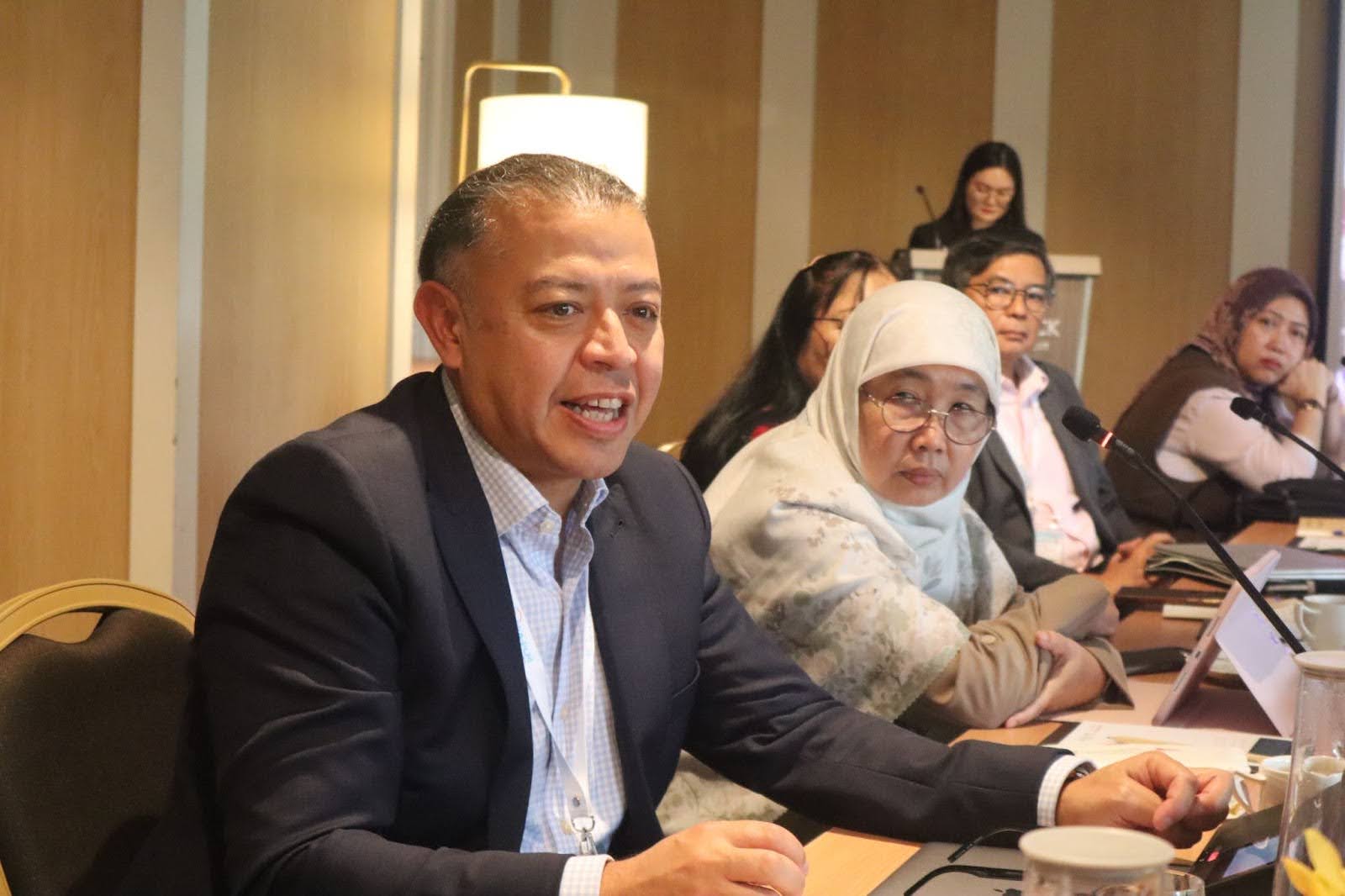 |
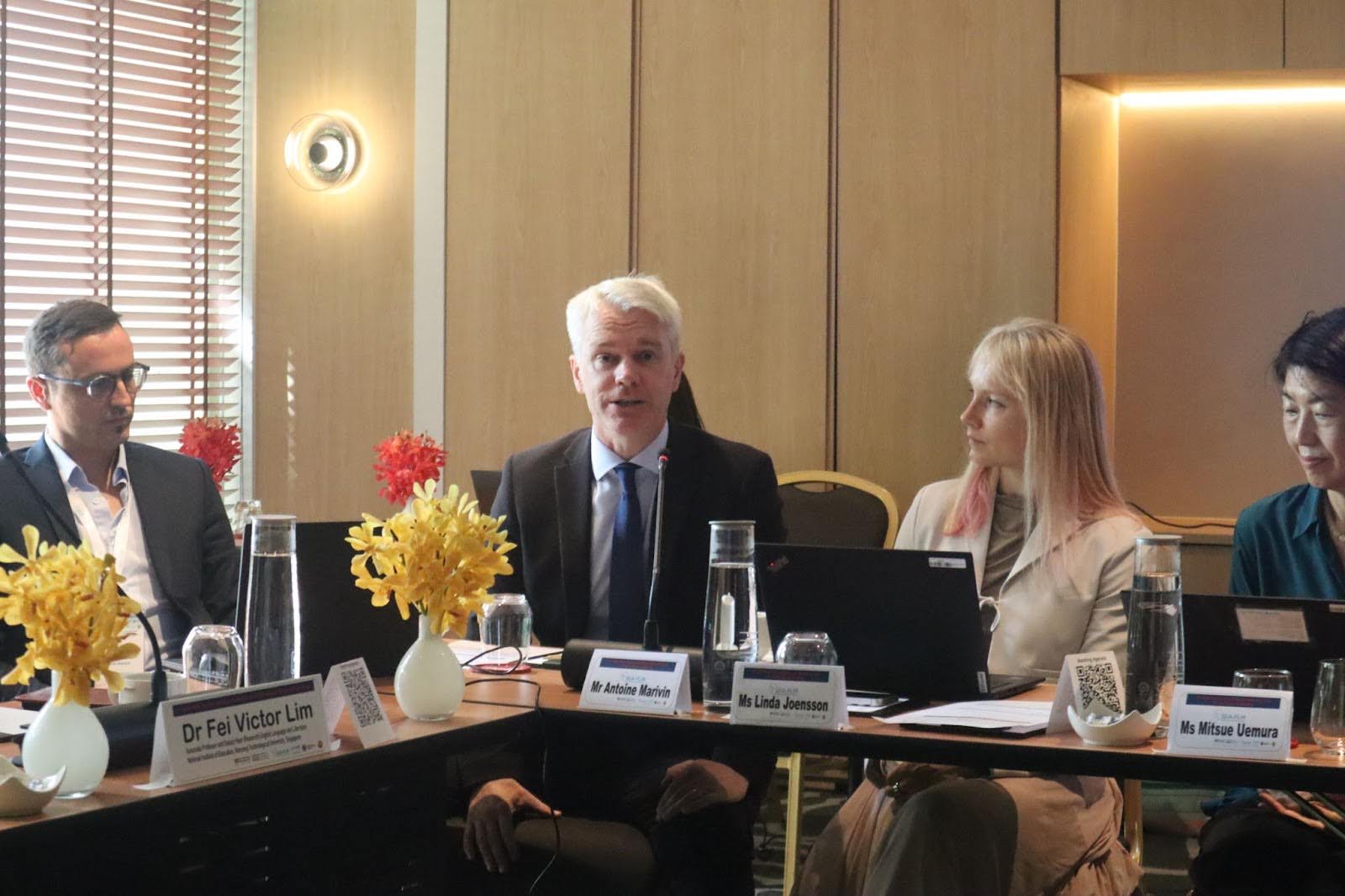 |
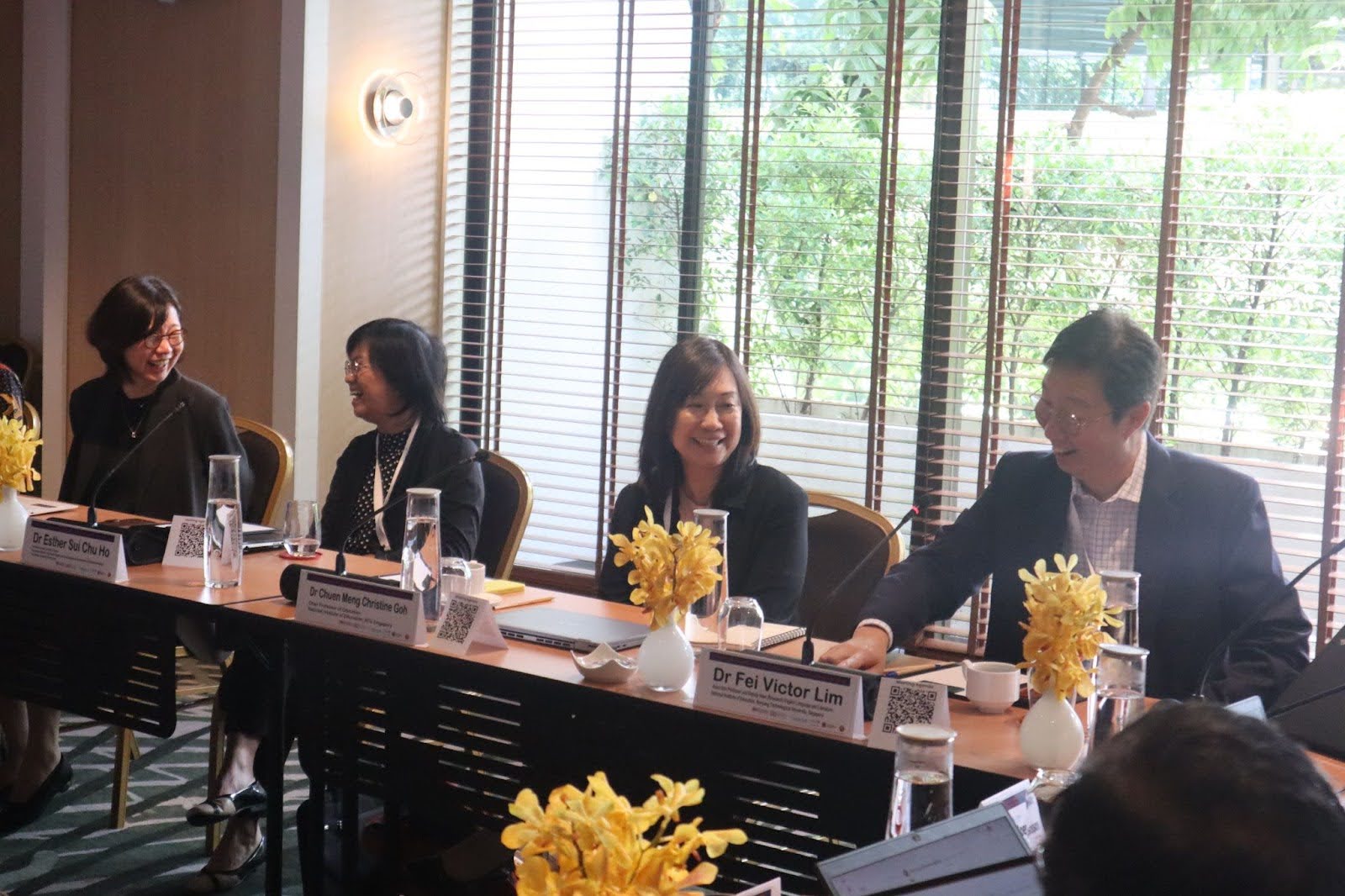 |
Experts and SEA-PLM partners during Technical Experts Network Meeting during the discussion session.
Day 2 focused on shaping Module 3 and drafting an initial frame for regional policy insights and implications to be embedded in the 2024 Main Regional Report.
Prof. Andres Sandoval Hernandez (University of Bath) underlined underscored the importance of the SEA-PLM TEN network in promoting technical rigor: “Strengthening the foundations of large-scale assessment means countries trust the evidence and act with more confidence”. Dr Eun Yong Kim, Director at KEDI, added that the network helps bridge research and practice: “TEN ensures that microdata and system-level insights translate into concrete steps that Ministries of Education can act on”.
SEA-PLM’s broader mission is to generate reliable comparative data, help countries interpret it, and support the use of evidence to inform policy. The TEN sits at the center of this process. After two days in Bangkok, members left with a refined Module 3, a sharper plan for regional recommendations, and renewed momentum to ensure data-driven insights reach decision-makers and ultimately benefit learners across Southeast Asia.
–
SEA-PLM is supported by the UK Mission to ASEAN under the ASEAN-UK Supporting the Advancement of Girls’s Education (SAGE) Programme. Its content is the sole responsibility of the SEA-PLM Regional Secretariat and does not necessarily reflect the views of ASEAN-UK SAGE.

|
|
|
|
|
|
|
|
SEA-PLM Strengthens National Capacity in Data Analysis of 2024 Main Survey
Bangkok, September 2025 - The SEA-PLM Regional Secretariat successfully conducted a two-week hands-on capacity-building workshop on data analysis from 18-29 September 2025, bringing national teams to strengthen their capacity to translate learning assessment data into meaningful policy insights. The regional capacity-building workshop was made possible with the generous support of the UK Government through the ASEAN-UK SAGE programme.
The training, held in two batches, convened teams from Lao PDR, Myanmar, and Timor-Leste in the first week, followed by Cambodia (online), Malaysia, the Philippines, and Viet Nam in the second. Honorary member countries Brunei Darussalam and Thailand also participated. Sessions were led by the SEA-PLM Regional Secretariat, Australian Council for Educational Research (ACER), and experts from the PISA team of the OECD.
 |
 |
 |
|
Mr John Arnold Siena (SEA-PLM Secretariat), Ms Renee Sze Leung Kwong (ACER), and Ms Soumaya Maghnouj (PISA) during technical workshop on data analysis
The workshop aimed to equip national teams with practical skills to manage and analyze their SEA-PLM 2019 and 2024 datasets. ensuring evidence could be transformed into meaningful policy insights. Over five intensive days, participants learned to navigate the SEA-PLM 2024 data structure, generate tables and charts, move from menu-driven analysis to SPSS syntax, and apply replicate procedures to calculate means, proficiency distributions, and percentiles. Teams also practiced merging student and parent questionnaires to uncover deeper insights, such as repeated grade percentages. Each batch concluded with country presentations of preliminary findings, followed by peer and expert feedback to guide next steps.
 |
 |
 |
 |
 |
 |
 |
|
Trainer from ACER and Participants during SEA-PLM Capacity Building on Data Analysis
A highlight of the second week was a comparative segment on SEA-PLM and PISA reporting. Trainers demonstrated how findings from both assessments can complement one another, while cautioning against overlooking differences in design, coverage, and target populations. Practical sessions covered the use of plausible values, replicate weights, and analytical tools such as IDB Analyzer to ensure rigorous reporting.
Unlike traditional workshops, the sessions emphasized reproducibility and real-world application. Participants worked directly with their own country datasets, developed analysis plans tied to national policy questions, and carefully documented their syntax for peer review. The goal was to ensure national teams left not only with technical skills but also with draft evidence-based narratives and visuals ready to inform reports and policy briefs.
Mr. Timothy of ACER highlighted the unique value of SEA-PLM: “The data allows countries to look beyond students and teachers to include parents’ perspectives, which provides a fuller picture for shaping national policies.”
From the participant side, Mrs. Sitthata of Lao PDR noted: “The training is directly useful for preparing our national report. We will continue consulting with SEA-PLM and ACER to ensure our analysis is accurate and impactful.”
 |
 |
Representative from Ministry of Education in Thailand and Brunei Darussalam participate in the capacity building workshop in SEA-PLM 2024 data analysis
Through initiatives like this, SEA-PLM aims to ensure that assessment data does not remain on shelves but is actively used to guide classroom practice and inform national policy decisions. With stronger skills and a shared regional toolkit, participating countries are better equipped to embed data-driven insights into education reforms
The workshop wasn’t just theoretical. Participants practiced with their own files, worked through country-specific research questions, and documented syntax carefully so analyses can be reproduced and peer reviewed later. The aim is that teams leave ready to write clear, evidence-based paragraphs and visuals for national reports, not just spreadsheets.
SEA-PLM’ hope, with stronger skills and a shared toolkit, national teams will go deeper into their results and contextualize them into concrete actions, so assessment data doesn’t sit on shelves, but actually informs classroom practice and policy decisions.
–
SEA-PLM is supported by the UK Mission to ASEAN under the ASEAN-UK Supporting the Advancement of Girls’s Education (SAGE) Programme. Its content is the sole responsibility of the SEA-PLM Regional Secretariat and does not necessarily reflect the views of ASEAN-UK SAGE.

|
|
|
|
|
|
|
|
SEA-PLM engages Education Ministers at the 53rd SEAMEO Council Conference in Brunei Darussalam
The Southeast Asia Primary Learning Metrics (SEA-PLM) joined in the recent 53rd SEAMEO Council conference, convened from 1 - 3 July 2025 at the Empire Brunei in Jerudong, Brunei Darussalam. The council conference witnessed the turn-over of the SEAMEO Council Presidency from the Philippines to Brunei Darussalam, highlighting a pivotal moment for renewed commitment for the advancement of education, science, and culture across Southeast Asia.
The SEAMEO Council Conference is a high-level annual meeting organized by the Southeast Asian Ministers of Education Organization (SEAMEO). It serves as a vital platform for member countries to engage in meaningful dialogue, exchange educational strategies, and adopt regional commitments to enhance quality and equitable education in the region. In a closed-door special session on “Regional Cooperation to Improve Quality and Equity in Education,” the SEA-PLM Regional Secretariat unveiled preliminary regional findings from its 2024 Main Survey the first comprehensive cross-country look at post-COVID-19 learning outcomes in Southeast Asia. Centered on foundational learning among Grade 5 students, the briefing provided a clear, comparable snapshot of where recovery stands, where gaps persist, and which equity challenges demand urgent attention. By placing these early results at the heart of the discussion, the session framed a concrete agenda for regional collaboration using shared evidence to guide policy dialogue, target support, and accelerate learning gains across the region.
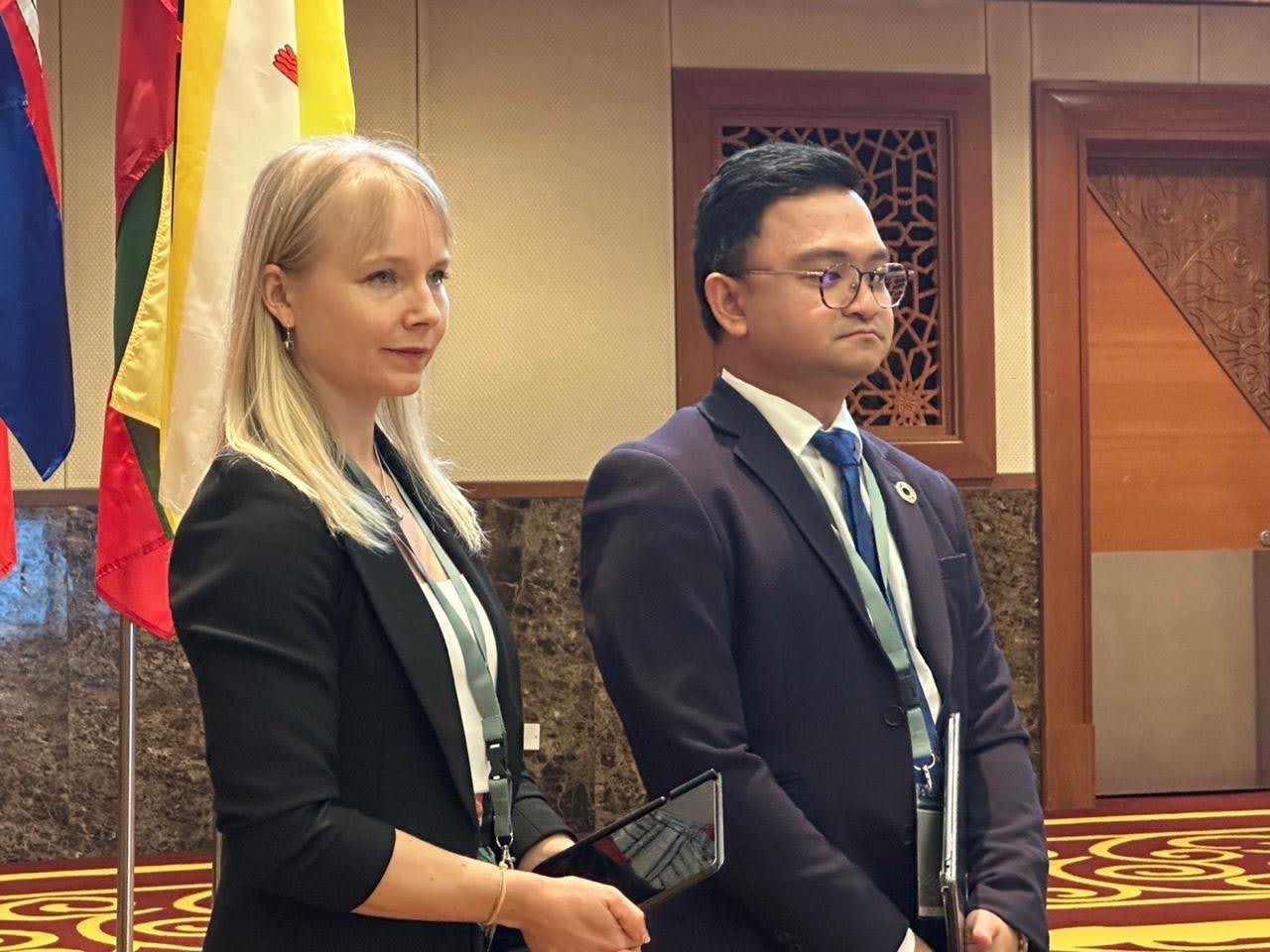
Mr. Alejandro Ibanez (SEA-PLM Programme Manager and Policy Specialist, and Ms. Linda Johnsson (Educational Specialist. UNICEF EAPRO), presented the results of SEA-PLM 2024
The session began with a presentation of key findings from the Southeast Asia Primary Learning Metrics (SEA-PLM) 2024 Main Survey. This presentation highlighted the continued regional collaboration to improve foundational learning outcomes. Of particular importance, the 2024 Main Survey offered the first comprehensive regional data on the learning achievements of children post-COVID-19, providing valuable insights to inform policy and practice.
The presentation was led by Mr. Alejandro Ibanez, SEA-PLM Programme Manager and Policy Specialist, and Ms. Linda Johnson, Education Specialist from UNICEF EAPRO.. The results, albeit under embargo, focused on regional trends and key patterns in various foundational areas of literacy and numearcy, and contextual factors from the data collected across the participating Ministries of Education of Cambodia, Lao PDR, Malaysia, Myanmar, Philippines, Timor-Leste, and Viet Nam.
The completion of the second round of SEA-PLM assessment, SEA-PLM 2024, registered high participation rates from students and schools across the seven countries, indicating fidelity to the sampling design and ensuring that results are nationally representative and demonstrate strong data reliability and comparability over time. The 2024 assessments were conducted in various national or official languages, increasing the number of national languages from 9 to 11, demonstrating the depth and inclusivity of the programme.
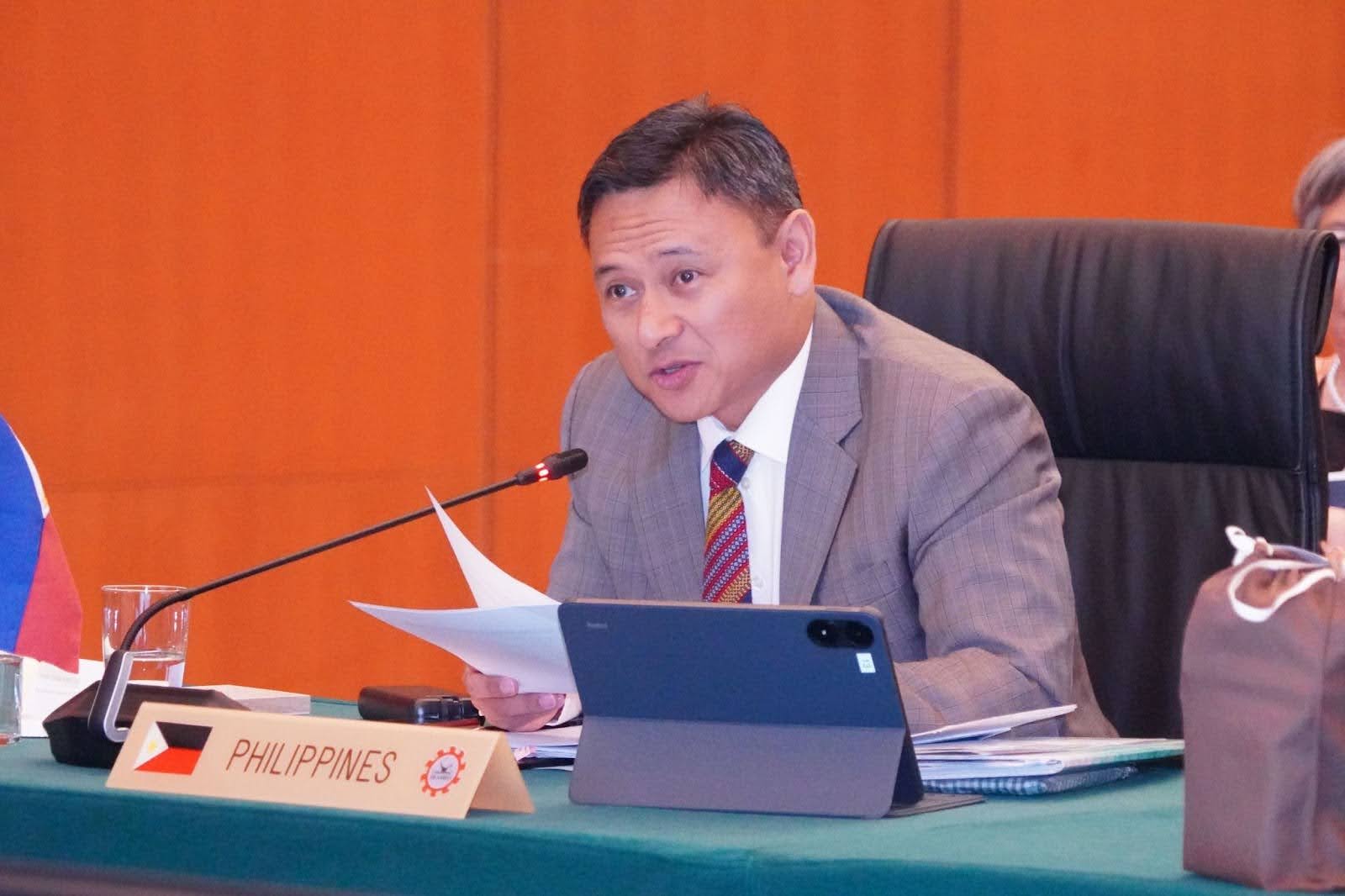
His Excellency Juan Edgardo ‘Sonny’ Angara, Secretary of Education for the Philippines and SEAMEO Council President give a closing remarks
Minister of Education of Brunei Darussalam and SEAMEO Council president, Her Excellency Datin Seri Setia Dr. Hajah Romaizah binti Haji Md Salleh, emphasized the significance of the SEA-PLM findings., “understanding these disparities is critical. SEA-PLM data equips us with the knowledge to create inclusive and effective educational strategies that ensure no child is left behind.”
Moving forward, countries have unified into a clear roadmap which showcased the commitment of participating countries to utilize the 2024 main survey data and generate meaningful insights that can help accelerate evidence-based reforms in their respective basic education systems. All of these actions lead to the strategic preparations for the next assessment cycle, SEA-PLM 2029, which offers a critical opportunity to deliver the final reporting on UN SDG 4 targets set for 2030.
In closing, His Excellency Juan Edgardo ‘Sonny’ Angara, Secretary of Education for the Philippines and outgoing SEAMEO Council President, highlighted the collaborative spirit driving SEA-PLM“ SEA-PLM exemplifies the collective action needed to address the region's educational challenges. It is through these joint efforts that will build stronger, more resilient education systems for the future of Southeast Asia.”
SEAMEO Council Conference successfully reaffirmed regional commitments to education, underscoring SEA-PLM’s essential role in fostering collaborative strategies for quality education and equity throughout Southeast Asia.
From Evidence to Impact: SEA-PLM highlighted in the 2025 NEQMAP Annual Meeting
At the NEQMAP 2025 Annual Meeting, three countries shared how SEA-PLM data is shaping policies and closing learning gaps.
On 8–9 July 2025, the Network on Education Quality Monitoring in the Asia-Pacific (NEQMAP) held its Annual Meeting in Bangkok, with support from UNESCO Regional Office in Bangkok and Office for UN Coordination for Asia and the Pacific (UNESCO Bangkok) and the SEAMEO Secretariat. A dedicated session, organized by the Southeast Asia Primary Learning Metrics (SEA-PLM) Regional Secretariat, outlined how Cambodia, Malaysia, and Viet Nam are using SEA-PLM data and evidence to strengthen foundational learning.
Before the country spotlight, Mr. Alejandro Ibanez, SEA-PLM Programme Manager, emphasized that SEA-PLM drives two core initiatives: the cyclical SEA-PLM surveys, which provide data to monitor student foundational learning, and evidence-to-policy linkages, which aim to translate assessment results into actionable education reforms. As Mr. Ibanez noted, “The objective of SEA-PLM is to provide countries in Southeast Asia with reliable data to create meaningful educational policies and interventions.”
Building on this regional overview, the three representatives showcased how their countries are applying SEA-PLM evidence to strengthen curriculum, teacher training, and policy reforms in basic education. With the recent completion of the 2024 Main Survey, countries now have a critical opportunity to accelerate data-driven strategies to improve learning outcomes. It also helps advance reporting on the region’s performance under SDG 4.1.1b (Minimum proficiency in reading and mathematics at the end of primary school).

From left to right: Dr. Maszuraini Binti Miswan (Malaysia); Ms. Linda Jonsson (UNICEF EAPRO); Mr. Alejandro Ibanez (SEA-PLM Secretariat); and Dr. Khanh Pham Quoc (Viet Nam). Joining via Zoom: Mr. Sarin Sar (Cambodia).
In Cambodia, Mr. Sarin Sar, Deputy Director, Education Quality Inspection Department, Ministry of Education, Youth and Sport (MoEYS), highlighted its Early Grade Learning programme, Komar Rien Komar Cheh, focused on Khmer and Mathematics, which significantly improved learners’ competencies through targeted teacher training and enhanced learning resources. “SEA-PLM findings have been instrumental in shaping our 10-point policy response, directly impacting our students’ foundational learning outcomes,” said Mr. Sarin.
From Malaysia, Dr. Maszuraini Binti Miswan, Principal Assistant Director at the Ministry of Education’s Research and Planning Division, presented the country’s curriculum mapping initiative, which aligned SEA-PLM assessment items with the national curriculum (Kurikulum Standard Sekolah Rendah, KSSR) and teaching strategy (Dokumen Standard Kurikulum dan Pentaksiran, DSKP). This alignment highlighted the need to strengthen Higher Order Thinking Skills (HOTS) in classrooms. Malaysia plans to address these in their upcoming 2027 curriculum revision and the development of their new education blueprint.
Meanwhile in Viet Nam, Dr. Khanh Pham Quoc, Deputy Director General of the Education Quality Management Agency, shared a major capacity-building programme guided by Ministerial Decision No. 468 (2023 Ministry of Education and Training decision approving a national general education assessment system for 2022–2030), which involved extensive training of educational managers and primary teachers across 63 provinces, resulting in an assessment item bank aligned with the SEA-PLM literacy and numeracy framework.
Together, the experiences of Cambodia, Malaysia, and Viet Nam demonstrate how SEA-PLM evidence is already shaping reforms at the national level. Building on these lessons, the discussion concluded with insightful exchanges on how large-scale assessments can drive smarter policies and stronger systems. It underscored the region’s shared commitment to advancing foundational learning by turning evidence into lasting change, ensuring that every child can learn and thrive.
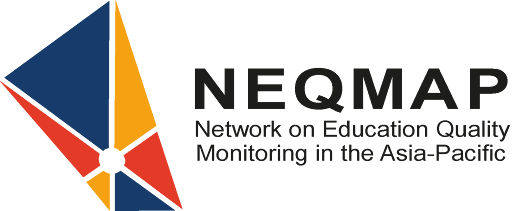
The Network on Education Quality Monitoring in the Asia-Pacific (NEQMAP), established in 2013, is a regional platform for sharing knowledge and expertise on education quality. It focuses on student learning assessment as a key tool for monitoring progress, while also recognising the vital links with curriculum and pedagogy. NEQMAP is coordinated by UNESCO Bangkok.
Related Links
- 2025 NEQMAP Annual Meeting: https://neqmap.bangkok.unesco.org/2025-neqmap-annual-meeting8-9-july-unesco-bangkok/
- SEA-PLM Programme: https://www.seaplm.org/
- SEAMEO Secretariat: https://www.seameo.org
- NEQMAP Knowledge Portal: https://neqmap.bangkok.unesco.org/
- SDG4-Education 2030 Asia-Pacific Hub: https://unes.co/learningandeducation2030
- UNESCO Bangkok: https://www.unesco.org/en/fieldoffice/bangkok
- UIS Learning Assessments: https://uis.unesco.org/en/uis-learning-outcomes
More...
Myanmar accelerates efforts to harness SEA-PLM evidence and insights for evidence-based education reforms
On 15 and 16 July 2025, the SEA-PLM Regional Secretariat, led by representatives from the SEAMEO Secretariat, in collaboration with Myanmar’s Ministry of Education, successfully conducted the 1st Country-Level Strategic Workshop in Nay Pyi Taw, Myanmar. Teams put “evidence-to-policy” front and center, and equity trade-offs in decision simulations that asked a simple question: which interventions will lift foundational learning fastest ?
Dr Zaw Latt Tun, Deputy Director General of the Department of Education Research, Planning, and Training, delivered an insightful presentation on the progress of Myanmar’s Education Sector Reform Agenda. Highlighting ongoing efforts, she emphasized the country’s long-term commitment, referring to Myanmar's special four-year education development plan (2000-2004) and the comprehensive 30-year long-term basic education plan (2001-2031). Dr Tun explained that these plans aim to enhance access to and quality of education, underpinning national development and preserving Myanmar’s rich cultural heritage.
One of the workshop’s highlights was the discussion on Myanmar’s National Action Plan, presented by Deputy Director General U Aung Htike from the Department of Myanmar Examination. He outlined Myanmar’s strategic initiatives derived from the SEA-PLM 2019 results, such as promoting early learning and increasing school enrolment, particularly in disadvantaged communities. The presentation included innovative steps like developing literacy and numeracy guidebooks and an instructional video to support teachers and students. Mr Aung Htike noted that “these actions are designed to bridge learning gaps and ensure all children receive the foundational skills essential for lifelong success”.
|
Dr. Khin Thida delivered opening remark |
|
|
|
|
Workshop sessions and during the Country-Level workshop in Nay Pyi Taw, Myanmar
Representing the SEA-PLM Regional Secretariat, Deputy Director for Programme and Development Mr John Arnold Siena expressed gratitude to Myanmar's Ministry of Education for the successful implementation of the SEA-PLM 2024 Main Survey. He mentioned, “With at least two comparable data points over time, Myanmar is now in a stronger position to contribute to international reporting on SDG 4.1.1b, which tracks minimum proficiency in reading and mathematics at the end of primary education”. This comparative analysis enhances the Ministry’s ability to understand learning trends and formulate effective policies informed by regional assessment data.
The workshop concluded with a reaffirmed commitment from Myanmar’s Ministry of Education to continue leveraging SEA-PLM data for ongoing educational improvement. This strategic alignment not only supports Myanmar’s educational reform goals but also contributes significantly to the regional effort towards achieving sustainable development goals.
As Myanmar prepares for the release of SEA-PLM 2024 results later in this year, the insights and collaborative outcomes from this strategic workshop provide a robust foundation for sustained educational progress and policy innovation.
SEA-PLM and the Viet Nam’s Education Ministry drive an evidence-to-policy shift through the first country-level strategic workshop
The Ministry of Education and Training (MOET) of Viet Nam, in close collaboration with the Southeast Asia Primary Learning Metrics (SEA-PLM) Regional Secretariat, SEAMEO Secretariat, and UNICEF EAPRO, convened the 1st SEA-PLM country-level strategic workshop on June 11 - 12, 2025, in Hanoi. This strategic event is part of SEA-PLM’s ongoing efforts to help countries harness the power of data to improve foundational learning outcomes across Southeast Asia. The workshop is a key component of Initiative 2: Evidence-to-policy linkages, which seeks to build national capacity to interpret, contextualize, and act upon student learning assessment data for more effective education policies.
Over two days, representatives from MOET, local education authorities, and development partners came together to explore how data from SEA-PLM’s large-scale assessments can be translated into practical reforms that support quality education for all children in VietNam.
Representatives from SEA-PLM Regional Secretariat and Ministry of Education and Training Group Photo
The workshop commenced with a high-level dialogue at the Ministry of Education and Training (MOET) office in Hanoi, where His Excellency TT Phạm Ngọc Thưởng, Deputy Minister of Education and Training, welcomed SEA-PLM representatives and partners. During the session, Datuk Dr. Habibah Abdul Rahim, representing the SEA-PLM Regional Secretariat, extended sincere appreciation to the Deputy Minister and the entire MOET team for their remarkable leadership and commitment in successfully implementing the SEA-PLM 2024 Main Survey.
|
|
|
SEA-PLM Regional Secretariat and the Ministry of Education and Training during during High-Level Discussions with His Excellency TT Phạm Ngọc Thưởng, Deputy Minister of Education and Training.
"Vietnam’s achievement in completing the 2024 Main Survey, along with other countries registering high participation rates in the region, reflects strong national ownership and a deep commitment to improving learning outcomes," Dr. Habibah shared. She emphasized that with at least two comparable data points now available, Vietnam is in a stronger position to contribute to global education indicators such as SDG 4.1.1b, which reports on minimum proficiency in reading and mathematics at the end of primary education.
His Excellency Deputy Minister underlined how the SEA-PLM survey’s insights provide essential tools to evaluate system-wide responses to learning recovery post-pandemic and to support informed policymaking. The dialogue also emphasized how Vietnam’s continued participation in SEA-PLM, particularly looking ahead to the upcoming third cycle in 2029, offers a long-term opportunity to track progress and strengthen educational equity and quality in the country.
Mr Alejandro Ibanez, SEA-PLM Programme Manager, facilitated the discussion with the education official from Viet Nam
The second day shifted to hands-on training aimed at translating evidence into meaningful insights. Education specialists, provincial officers, and school administrators joined the workshop to dive into the SEA-PLM findings. This is the essence of SEA-PLM’s Initiative 2, “Evidence-to-Policy Linkages,” which empowers countries to turn assessment data into meaningful actions and reforms. During the workshop the Vietnamese team had the opportunity to dissect the latest survey results,from system-level questionnaires that reveal the learning environment in schools, to sample items in reading and mathematics, and preliminary 2024 student achievement results reading and math.
|
|
|
Group discussion during workshop
Working in groups, the educators discussed questions like: How can we support students who fell behind? And what policies can help teachers in rural areas improve foundational skills? The workshop atmosphere was one of problem-solving and encouragement. SEA-PLM facilitators shared regional “smart buys” – proven strategies to boost basic skills – and the Vietnamese team considered how to adapt these to the local context. By midday, the groups had sketched out concrete next steps. They proposed actions ranging from updating teacher training curricula with lessons learned to strengthening tutoring programs for struggling readers, to improving data sharing so that even district-level officials can use SEA-PLM insights. This action planning was in line with the National Steering Committee’s mandate, ensuring that ideas from the workshop would feed into the overall national action plans.
This country workshop in Vietnam is part of a broader push across Southeast Asia to bridge the gap between policy and practice. The outputs and insights generated from the workshop will contribute to greater understanding of Vietnam’s education reform journey and accelerate evidence-based actions and practices. Later this year, the SEA-PLM 2024 main regional report will be released, and Vietnam aims to support the launch with country-level actions and reforms.. As one SEA-PLM representative put it, the goal is to turn data into action and commitment into impactful outcomes for all children in the region.
–
SEA-PLM is supported by the UK Mission to ASEAN under the ASEAN-UK ASEAN-UK Supporting the Advancement of Girls’s Education (SAGE) Programme. Its content is the sole responsibility of the SEA-PLM Regional Secretariat and does not necessarily reflect the views of ASEAN-UK SAGE.

|
|
|
|
|
|
|
|
Cambodia advances education reforms as SEA-PLM shifts to Evidence-to-Policy strategy
The SEA-PLM team met with His Excellency Dr. Hang Chuon Naron, Deputy Prime Minister and Minister of Education, Youth, and Sport of Cambodia, during the country-level strategic workshop held on 31 March – 1 April. In a high-level dialogue, Dr. Naron shared the Ministry’s policy priorities and best practices in advancing foundational learning as part of Cambodia’s ongoing education reforms. Datuk Dr. Habibah Abdul Rahim, Co-Chair of the SEA-PLM programme from the SEAMEO Secretariat, also contributed to the discussion, emphasizing the programme’s shift towards in-country support through the new strategy on Evidence-to-Policy linkages.
His Excellency Dr. Hang Chuon Naron, Deputy Prime Minister and Minister of Education, Youth, and Sport of Cambodia and Datuk Dr Habibah Abdul Rahim (SEAMEO Secretariat) at the start of the SEA-PLM Country level workshop in Cambodia
Following the high-level dialogue, the workshop introduced Initiative 2: the Evidence-to-Policy framework. This initiative aims to transform data and insights gathered from the SEA-PLM assessments into concrete, impactful educational policies. The evidence from the SEA-PLM 2019 highlighted a foundational skills crisis across Southeast Asia, with significant gaps in literacy and numeracy among primary school children. Addressing these challenges through evidence-based policies is a central goal of the initiative.
The workshop continued on its second day with robust discussions involving various stakeholders. Partners from diverse educational development organizations, the Ministry of Education, Youth, and Sport, and the SEA-PLM Regional Secretariat convened to explored collaborative approaches to translate educational evidence into policy actions to drive impactful reforms at national and sub-national levels.
Mr Alejandro Ibanez (SEA-PLM Programme Manager) facilitated the discussion during a country workshop in Cambodia.
Day three featured an engaging session on the new SEA-PLM System-Level Questionnaire, expertly facilitated by Dr. Fei Victor Lim from Nanyang Technological University (NTU). This session unpacked the complexities of policy environments in basic education, providing participants with deeper insights into effective policy-making mechanisms.
Cambodia outlined essential next steps to continue advancing foundational learning initiatives. These include activating the national steering committee, finalizing an analysis plan, identifying collaborative opportunities with the Regional Secretariat, and analyzing the data from the SEA-PLM 2024 survey, expected to be available for the Ministry of Education, Youth, and Sport in August. Additional activities involve producing a comprehensive national report, conducting secondary analyses, participating in the Regional Steering Committee, and actively engaging in the upcoming Foundational Learning Forum.
–
The UK supports SEA-PLM through the ASEAN-UK SAGE Programme, funded by UK International Development.
|
|
https://www.britishcouncil.id/en/programmes/education/asean-uk-sage |
|
|
https://x.com/SEAPLM_S |
|
|
Foundational learning takes center stage at ASEAN Ministerial Roundtable during 2025 Education World Forum
The Southeast Asia Primary Learning Metrics (SEA-PLM) took centre stage at a major global education event, participating in the ASEAN Ministerial Roundtable on Foundational Learning held at the Queen Elizabeth II Conference Centre in London from 18–22 May 2025, as part of the 2025 Education World Forum. The roundtable brought together ASEAN Ministers and High Officials, led by SEAMEO Council President Sonny Angara and Vice President Romaizah binti Haji Mohd Salleh, along with senior representatives from Cambodia, Lao PDR, Malaysia, Viet Nam, and Thailand. Discussions focused on the state of foundational learning across Southeast Asia and the urgent need to accelerate education reforms in response to the regional learning crisis.
Datuk Dr Habibah Abdul Rahim, SEAMEO Director, and Mr Alejandro Ibanez, SEA-PLM Programme Manager, at the Educational World Forum in London 2025.
SEA-PLM, represented through the SEAMEO Secretariat delegation and participating member countries, took part in the ASEAN Ministerial Roundtable to provide evidence and data on student’s foundational skills,highlighting both the urgent challenges and emerging policy responses drawn from robust regional data.
The sharing from the SEA-PLM Regional Secretariat focused on the tangible policy shifts that countries are implementing in response to these findings. For example, Lao PDR and the Philippines have initiated curriculum reform to improve early grade literacy, while Cambodia has increased investment in early grade learning following the pandemic. In addition, preliminary findings from SEA-PLM 2024 reveal promising improvements in various equity indicators and other learning metrics.
SEA-PLM’s new strategy Initiative 2: Evidence to policy linkages was spotlighted as a model for translating data into actionable reforms. This initiative supports countries in using assessment data to drive decision making at both national and sub-national levels.
As SEA-PLM prepares to release the 2024 regional results later this year, the insights are expected to provide countries with critical feedback on their post COVID recovery strategies. The result will also inform the programme’s strategic roadmap for 2026-2030, including preparation for the next regional assessment cycle, SEA-PLM 2029, which will align with the UN’s SDG 2030 targets.
Education World Forum 2025 Side Session
During the EWF, the SEA-PLM delegation also engaged in side meetings with key partners and stakeholders in the UK and beyond leveraging strategic partnerships and global coalitions to enhance the programme’s visibility and influence, and to sustain momentum in advancing foundational learning across Southeast Asia."
–
The UK supports SEA-PLM through the ASEAN-UK SAGE Programme, funded by UK International Development.
|
|
|
|
|
https://x.com/SEAPLM_S |
|
|






